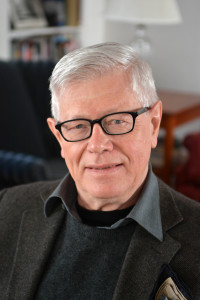 I am pleased to announce that Professor Gary L. Haller has been selected as the recipient of the 2016 NACS Award for Distinguished Service in the Advancement of Catalysis. The Award is presented every two years to recognize an individual who has advanced catalytic chemistry or engineering through both significant service to the catalysis community and outstanding technical accomplishments. This award includes an honorarium ($5,000) and a plaque. It is awarded by the North American Catalysis Society and sponsored by ExxonMobil and Clariant and will be presented to Professor Haller during the 2017 NAM in Denver.
I am pleased to announce that Professor Gary L. Haller has been selected as the recipient of the 2016 NACS Award for Distinguished Service in the Advancement of Catalysis. The Award is presented every two years to recognize an individual who has advanced catalytic chemistry or engineering through both significant service to the catalysis community and outstanding technical accomplishments. This award includes an honorarium ($5,000) and a plaque. It is awarded by the North American Catalysis Society and sponsored by ExxonMobil and Clariant and will be presented to Professor Haller during the 2017 NAM in Denver.
This award acknowledges Professor Haller’s commitment to the catalysis community and his selfless dedication to the advancement of the field. He has served as a teacher and researcher, as a caring mentor of students and younger faculty, and as a warmly regarded academic leader. Gary Haller has served the community in many key leadership positions throughout his career. His roles as Editor of the Journal of Catalysis and as General Chairman of the 11th International Congress on Catalysis brought vision, effective planning, and sensitivity to the many constituencies served and left a lasting impact and an enduring example of service in our community. He served as President and Vice-President of The Catalysis Society, as well as a member of its Board of Directors. He has been a member of the board of editors and editorial boards for American Scientist, Catalysis Reviews, Journal of Catalysis, Catalysis Letters, Reaction Kinetics and Catalysis Letters, and Journal of Molecular Catalysis A: Chemical. He has been the Chair of the Gordon Research Conference on Catalysis and of the Division of Colloid and Surface Chemistry of the American Chemical Society. In these roles, through his vision and example, he has served as a role model for those who followed him in such roles.
His technical accomplishments and those of his academic progeny have been widely recognized for bringing new understanding about how supports influence the reactivity of dispersed metal particles and how structure affects the behavior of acid sites in oxides. His work has advanced, conceptually and practically, our understanding of the catalytic properties of carbon nanotubes. He has been a pioneer in harnessing the power of spectroscopic methods for the benefit of catalytic understanding. For these contributions he has been recognized with the Burwell Lectureship (Catalysis Society) Netherlands Institute for Catalysis Research Lectureship, the Lacey Lectureship (Caltech), the Ipatieff Professorship (Northwestern), the Harry Fair Lectureship (Oklahoma), the Yale Science and Engineering Association Award for Meritorious Service, the Catalysis Society of Metropolitan New York Award for Excellence in Catalysis, the George C. A. Schuit Lectureship (Delaware).
On behalf of our members, we convey warm congratulations to Professor Gary Haller along with our gratitude for his contributions and for his example.
Enrique Iglesia
President, North American Catalysis Society
Bruce Cook
Vice President, North American Catalysis Society
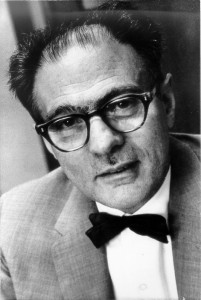
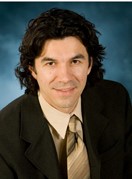 We are pleased to announce that Professor Suljo Linic of the University of Michigan is the recipient of the 2017 Paul H. Emmett Award in Fundamental Catalysis, sponsored by W.R. Grace
We are pleased to announce that Professor Suljo Linic of the University of Michigan is the recipient of the 2017 Paul H. Emmett Award in Fundamental Catalysis, sponsored by W.R. Grace 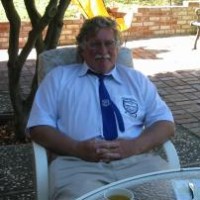 The Catalysis and Reaction Engineering Division Leadership and Board of Directors would like to congratulate the CRE Division award recipients announced at the 2016 AIChE Annual Meeting in San Francisco. The CRE currently provides three awards: The Practice Award, Graduate Student Travel Awards, and Poster Presentation Awards.
The Catalysis and Reaction Engineering Division Leadership and Board of Directors would like to congratulate the CRE Division award recipients announced at the 2016 AIChE Annual Meeting in San Francisco. The CRE currently provides three awards: The Practice Award, Graduate Student Travel Awards, and Poster Presentation Awards.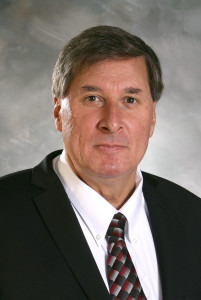 Dr. Jeffery Bricker, Senior Director of Research at Honeywell UOP is the recipient of the 2017 Eugene J. Houdry Award of the North American Catalysis Society. The Eugene J. Houdry Award in Applied Catalysis is sponsored by Clariant. It is administered by The Catalysis Society and awarded biennially in odd-numbered years. This award recognizes and encourages individual contributions in the field of catalysis with emphasis on the development of new and improved catalysts and processes representing outstanding advances in their useful application. The award consists of a plaque and a prize of $5,000, which will be presented at the 25th North American Meeting of the Catalysis Society to be held in Denver, CO, June 4–9, 2017. The Award Plenary lecture will also be presented during this meeting.
Dr. Jeffery Bricker, Senior Director of Research at Honeywell UOP is the recipient of the 2017 Eugene J. Houdry Award of the North American Catalysis Society. The Eugene J. Houdry Award in Applied Catalysis is sponsored by Clariant. It is administered by The Catalysis Society and awarded biennially in odd-numbered years. This award recognizes and encourages individual contributions in the field of catalysis with emphasis on the development of new and improved catalysts and processes representing outstanding advances in their useful application. The award consists of a plaque and a prize of $5,000, which will be presented at the 25th North American Meeting of the Catalysis Society to be held in Denver, CO, June 4–9, 2017. The Award Plenary lecture will also be presented during this meeting. I am pleased to announce that Professor Gary L. Haller has been selected as the recipient of the 2016 NACS Award for Distinguished Service in the Advancement of Catalysis. The Award is presented every two years to recognize an individual who has advanced catalytic chemistry or engineering through both significant service to the catalysis community and outstanding technical accomplishments. This award includes an honorarium ($5,000) and a plaque. It is awarded by the North American Catalysis Society and sponsored by ExxonMobil and Clariant and will be presented to Professor Haller during the 2017 NAM in Denver.
I am pleased to announce that Professor Gary L. Haller has been selected as the recipient of the 2016 NACS Award for Distinguished Service in the Advancement of Catalysis. The Award is presented every two years to recognize an individual who has advanced catalytic chemistry or engineering through both significant service to the catalysis community and outstanding technical accomplishments. This award includes an honorarium ($5,000) and a plaque. It is awarded by the North American Catalysis Society and sponsored by ExxonMobil and Clariant and will be presented to Professor Haller during the 2017 NAM in Denver.